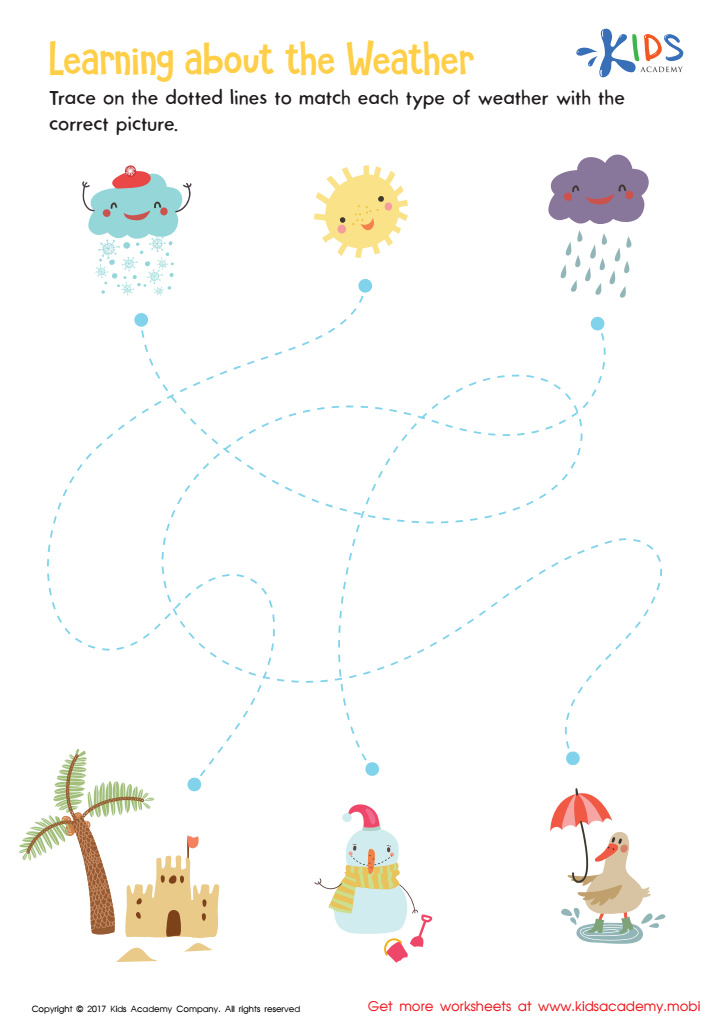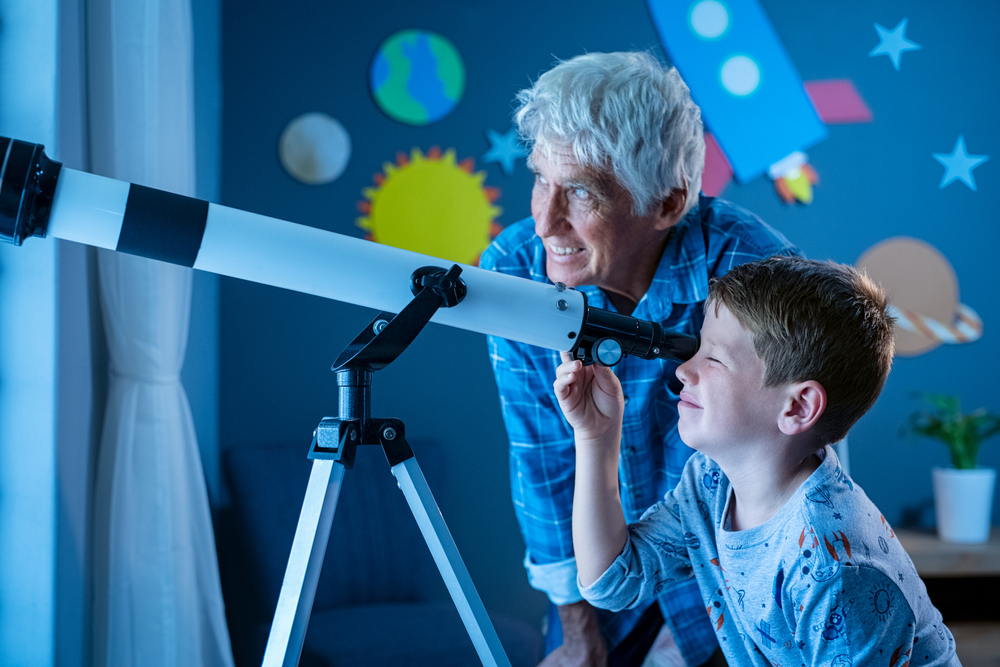Science Worksheets for Ages 4-7 - Page 12
310 filtered results
-
From - To
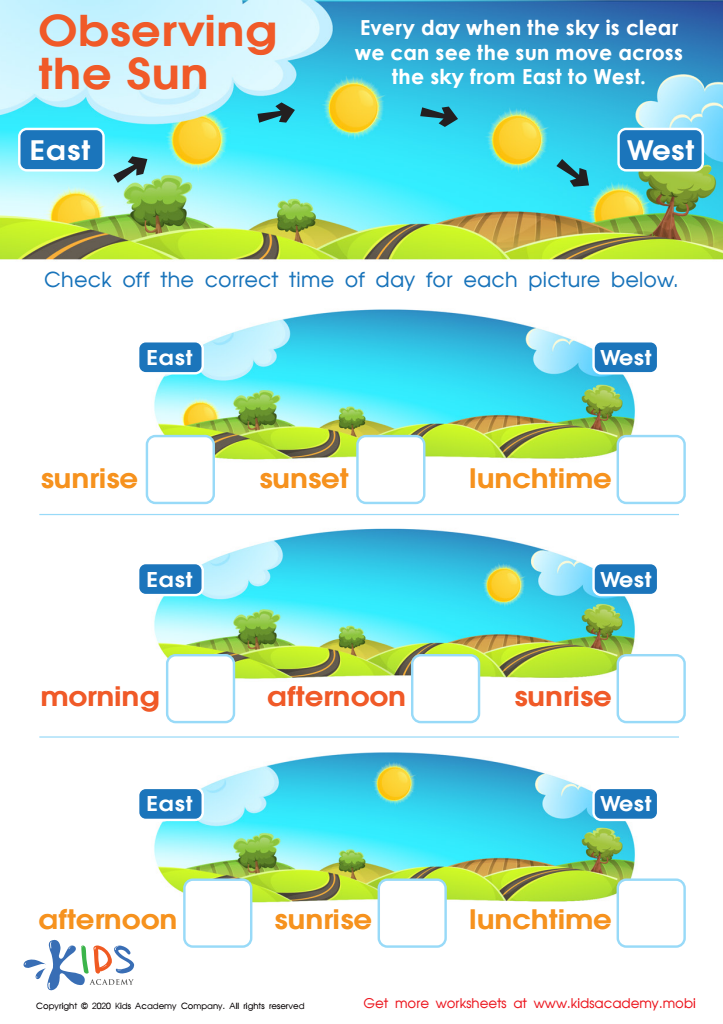

Observing the Sun Worksheet
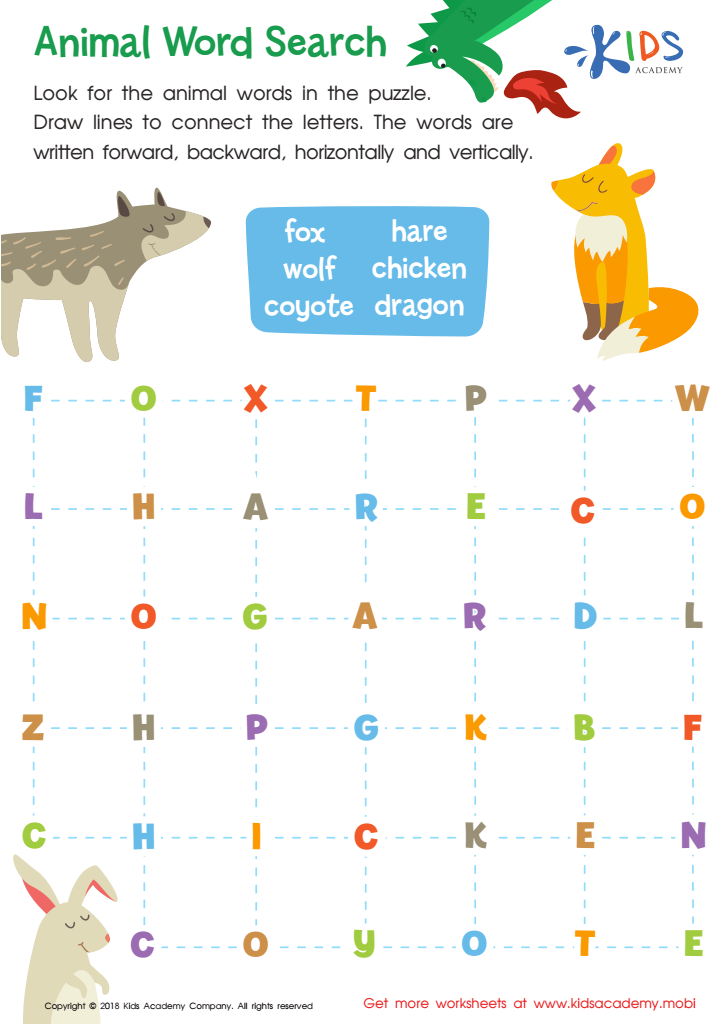

Animal Word Search Worksheet
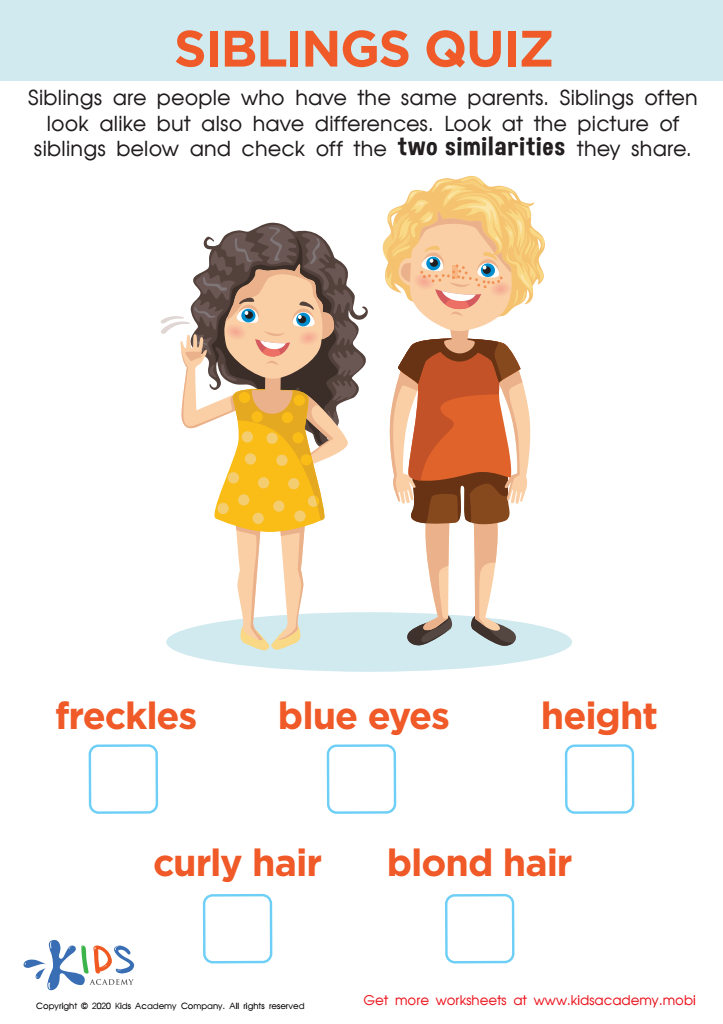

Siblings Quiz Worksheet
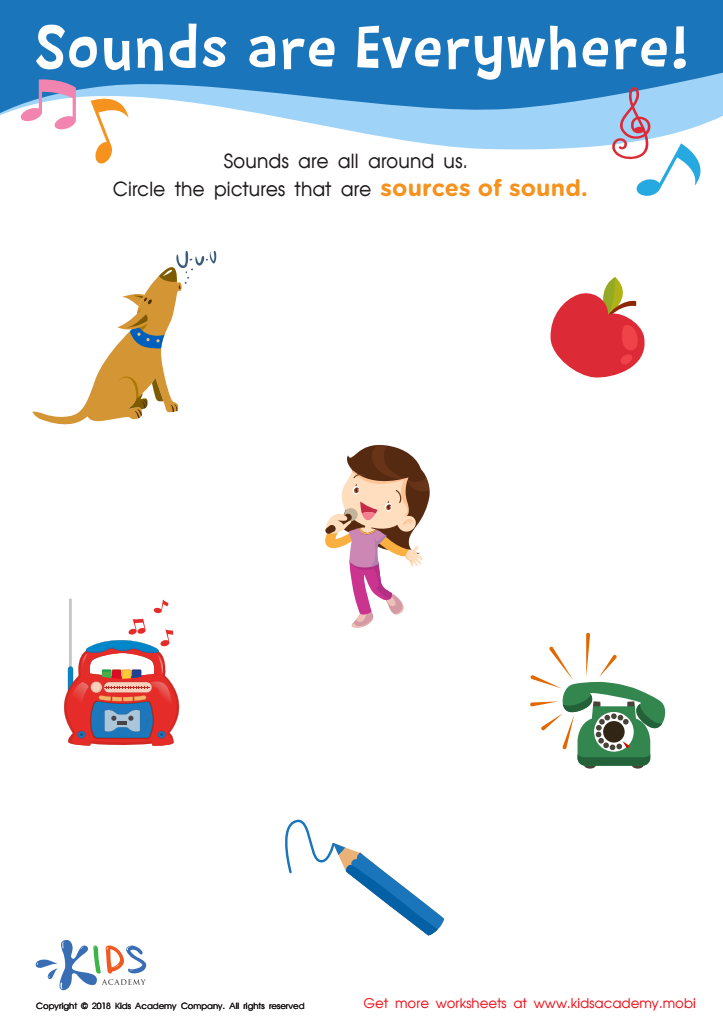

Sounds Are Everywhere! Worksheet
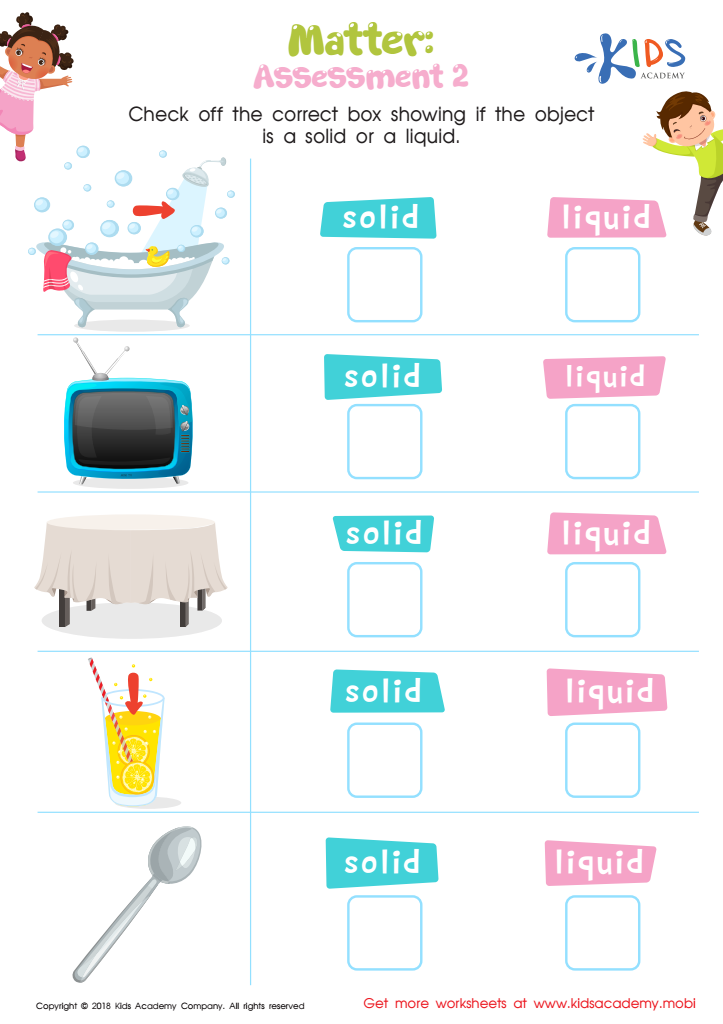

Matter: Assessment 2 Worksheet
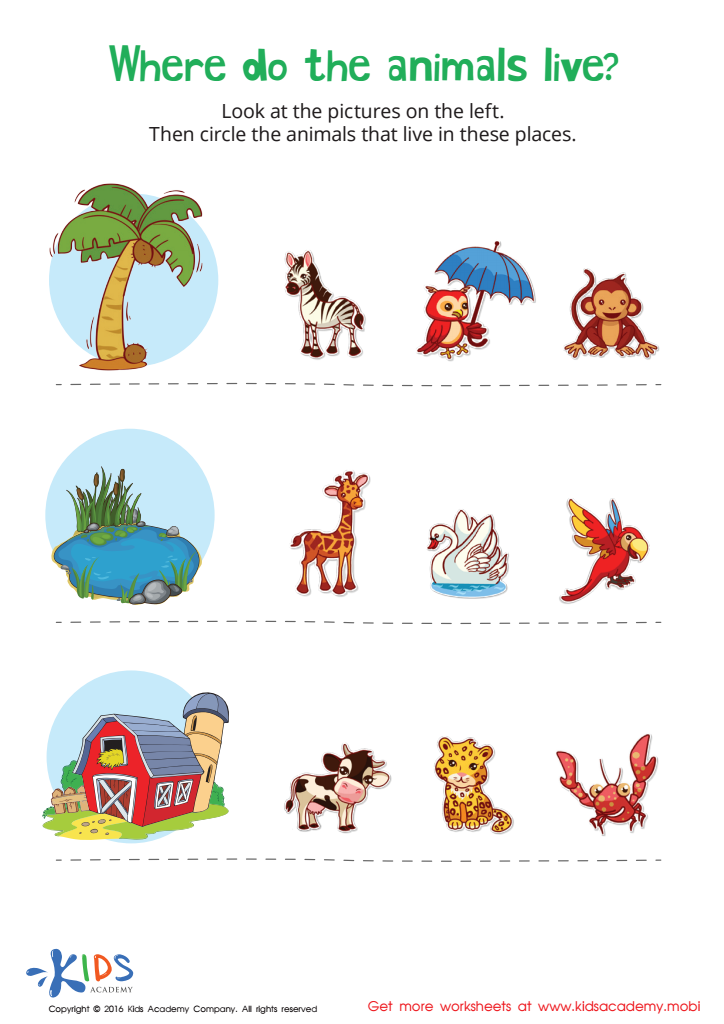

Where Animals Live Worksheet


Ecosystems: Assessment 2 Worksheet
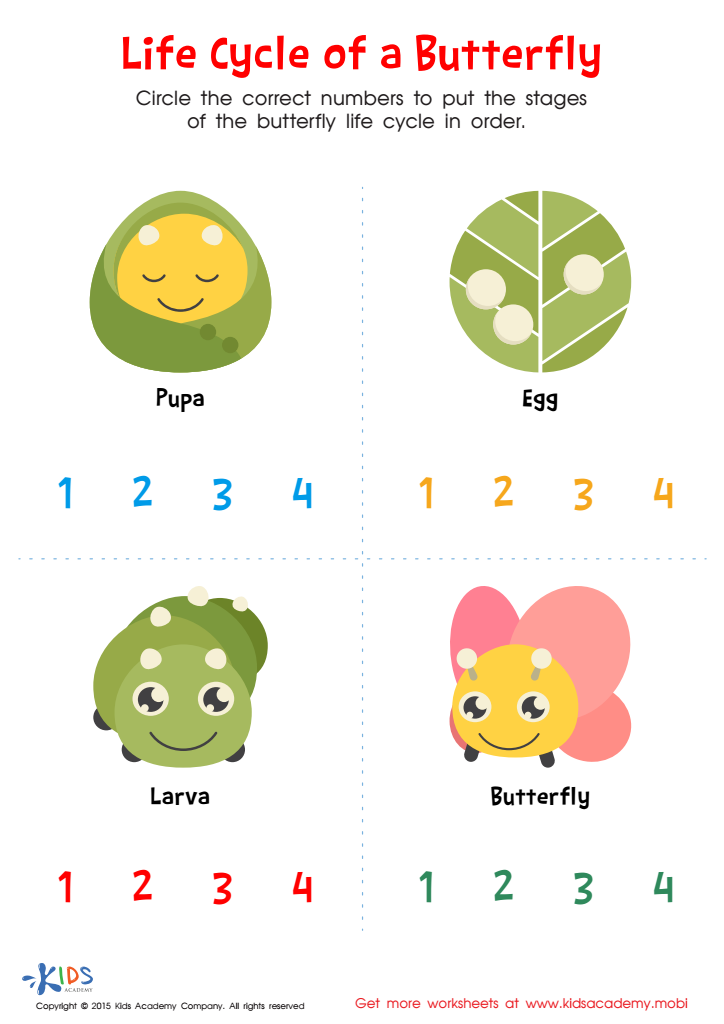

Life Cycle of Butterfly Printable
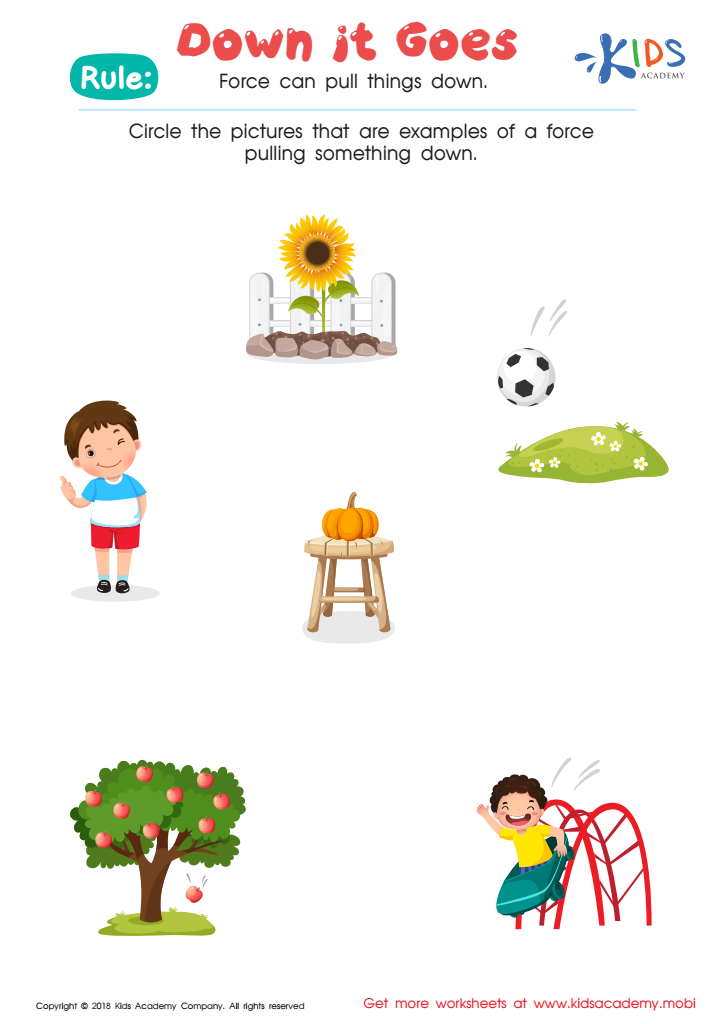

Down it Goes Worksheet
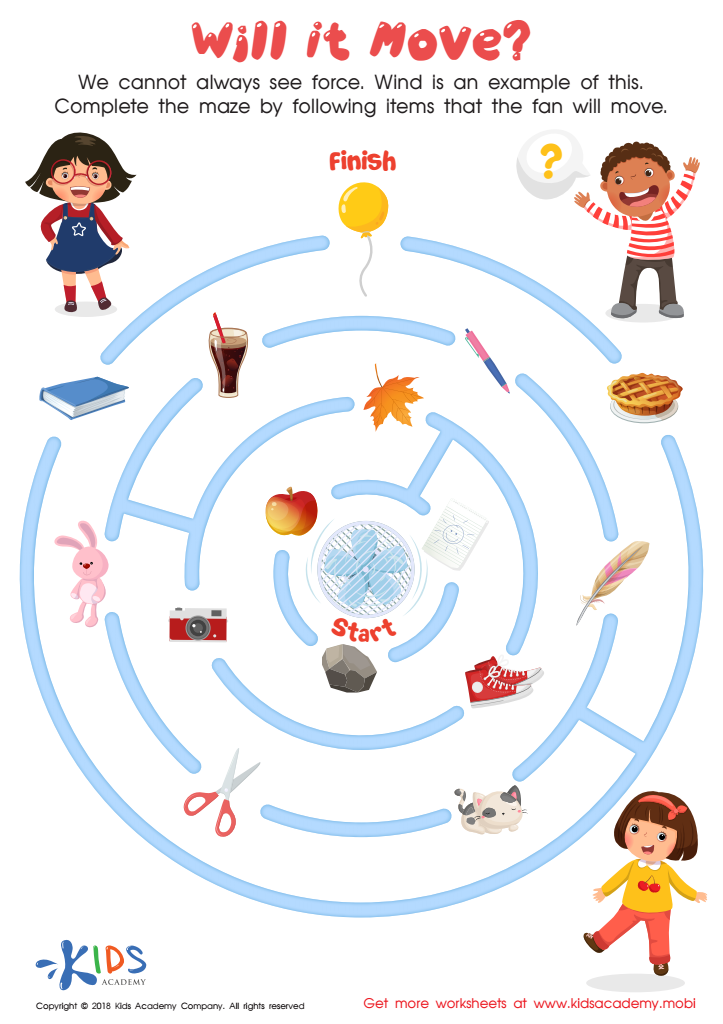

Will it Move? Worksheet


Space: Assessment 2 Worksheet
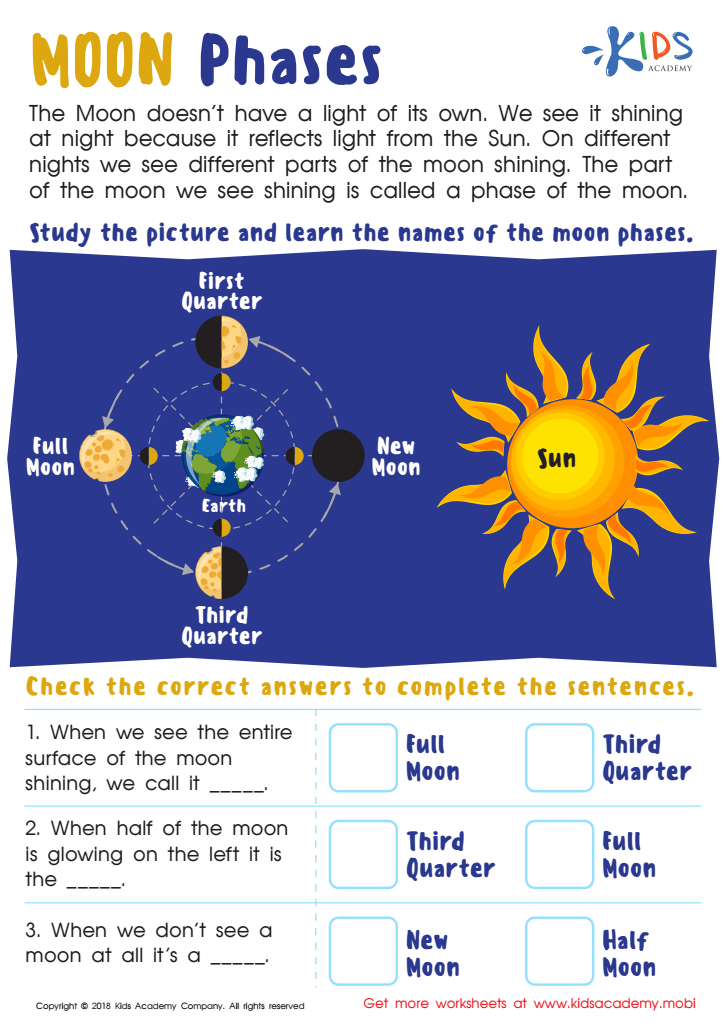

Moon Phases Worksheet
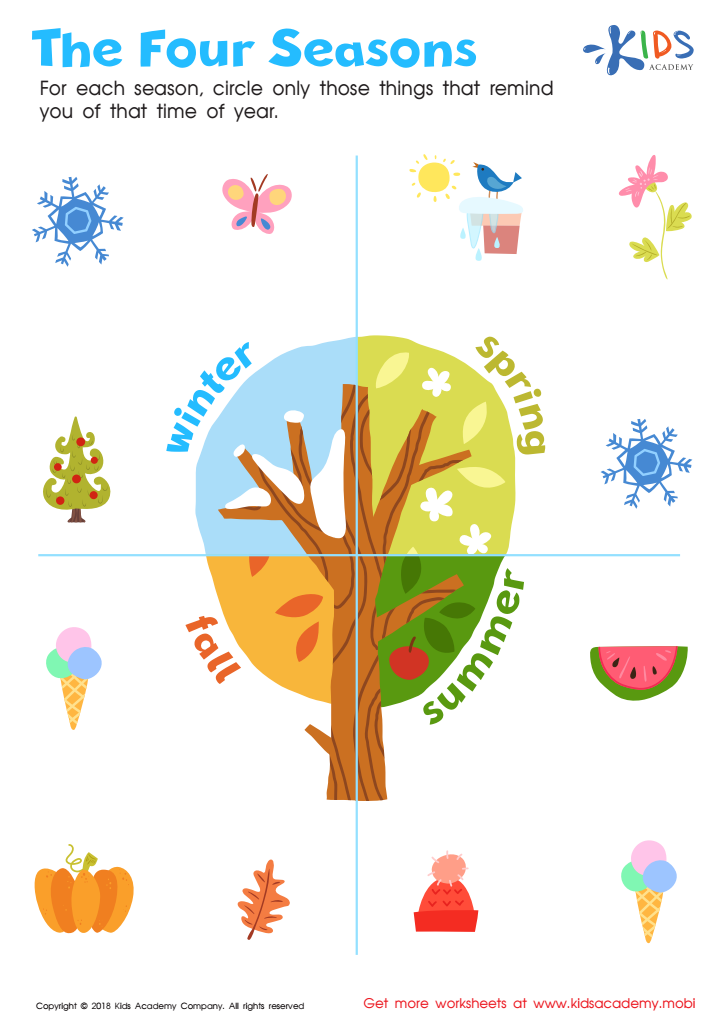

The Four Seasons Worksheet
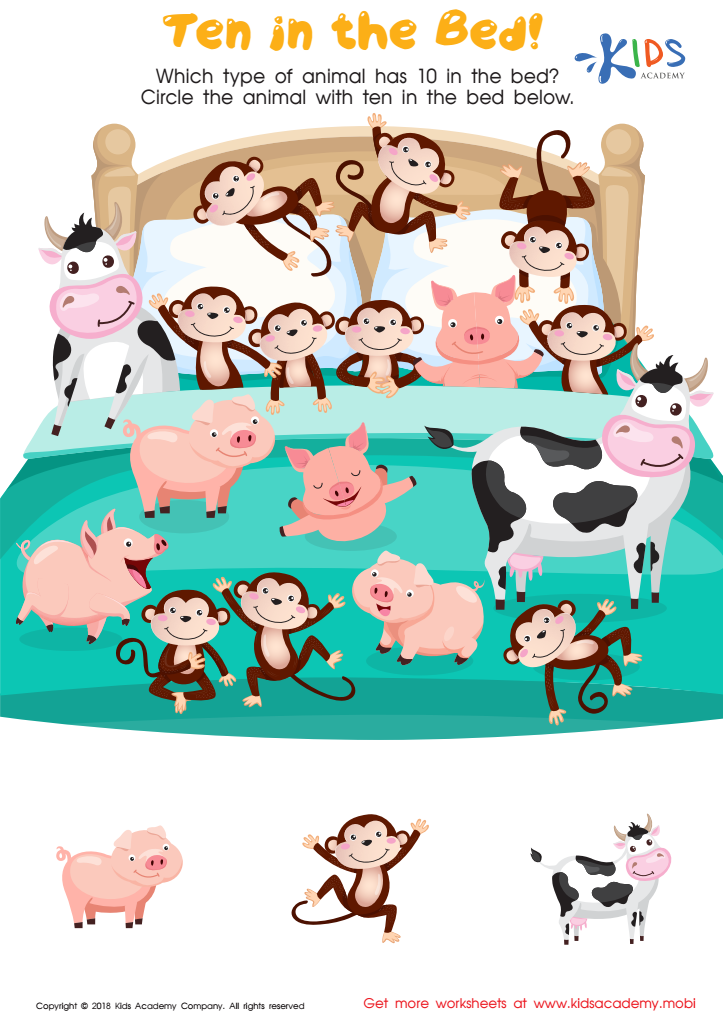

Ten in the Bed Worksheet
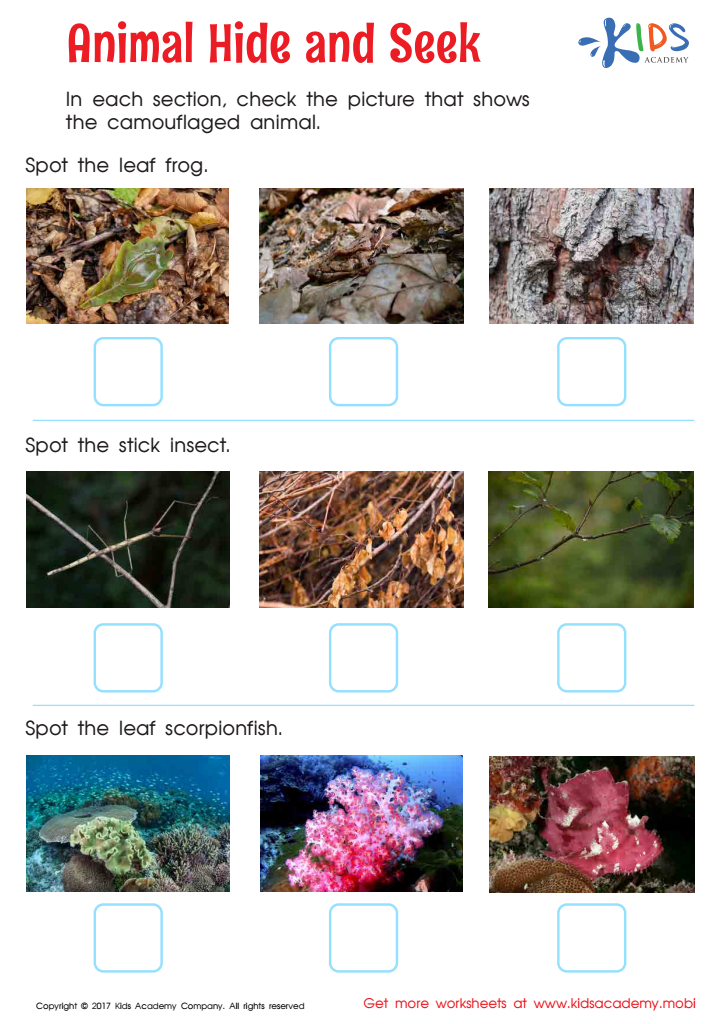

Animal Hide and Seek Worksheet
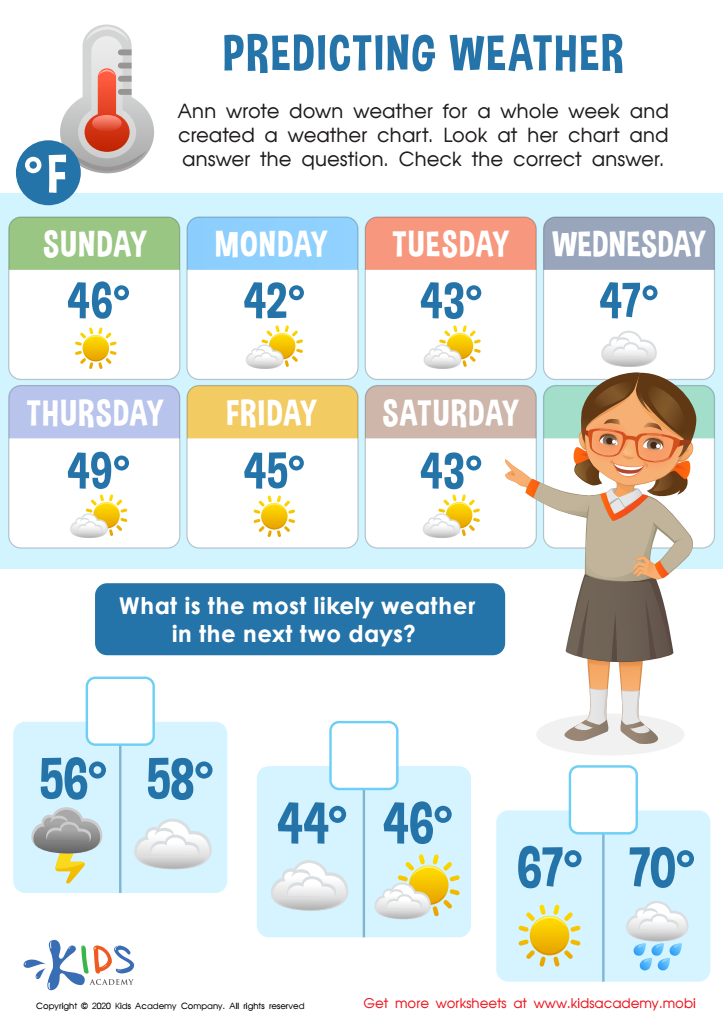

Predicting Weather Worksheet
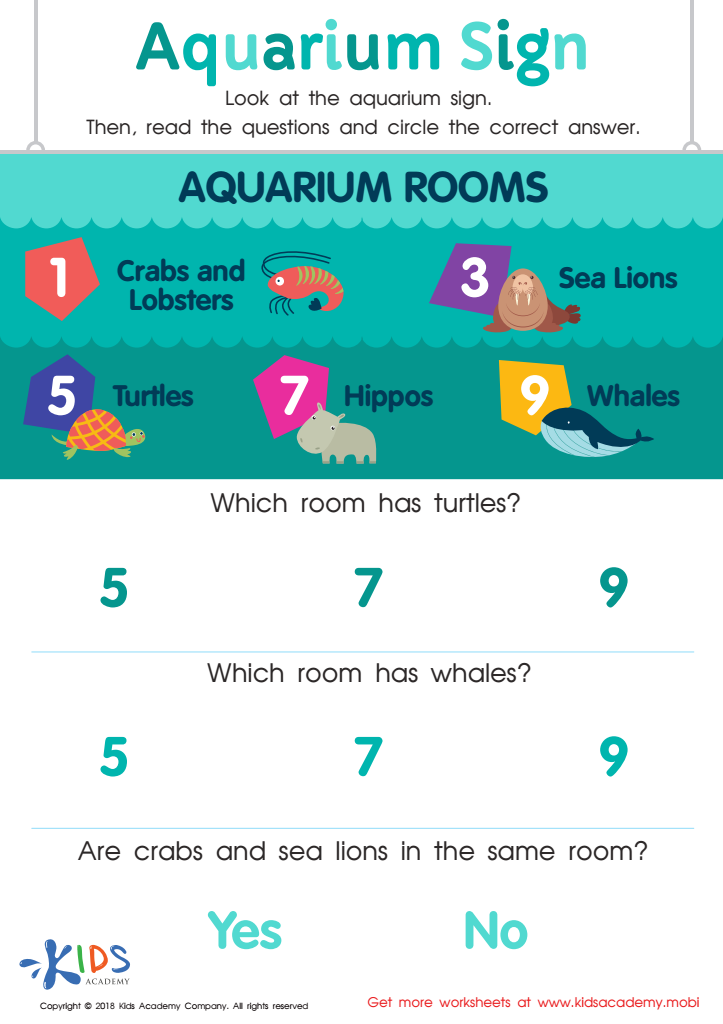

Assessment: Aquarium Sign Worksheet
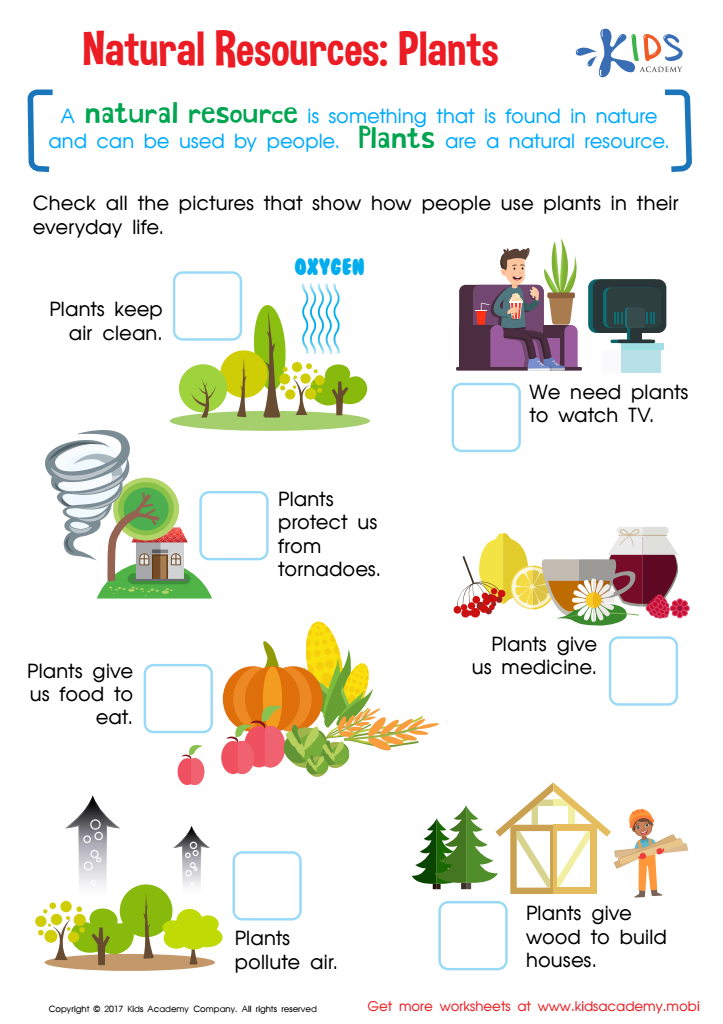

Natural Resources: Plants Worksheet
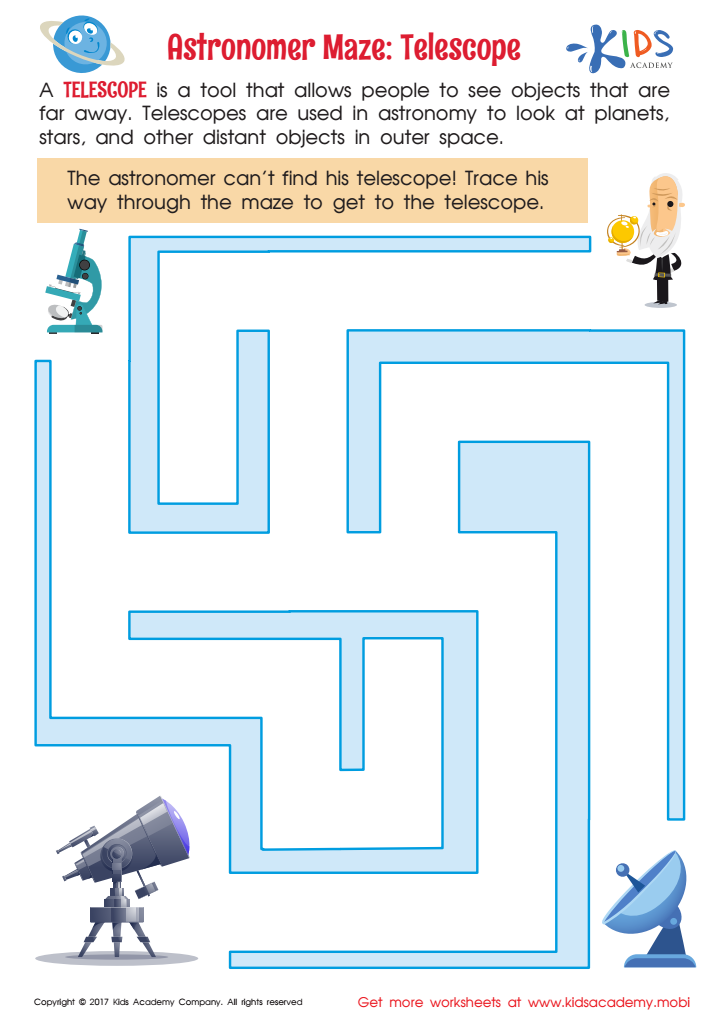

Astronomer Maze: Telescope Worksheet
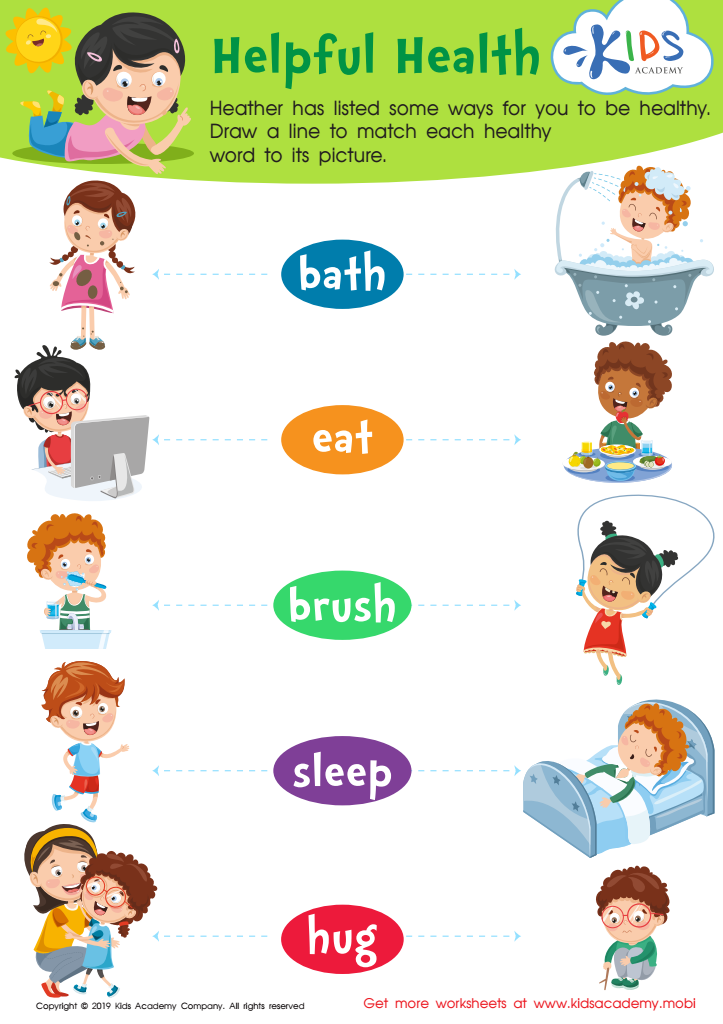

Helpful Health Worksheet
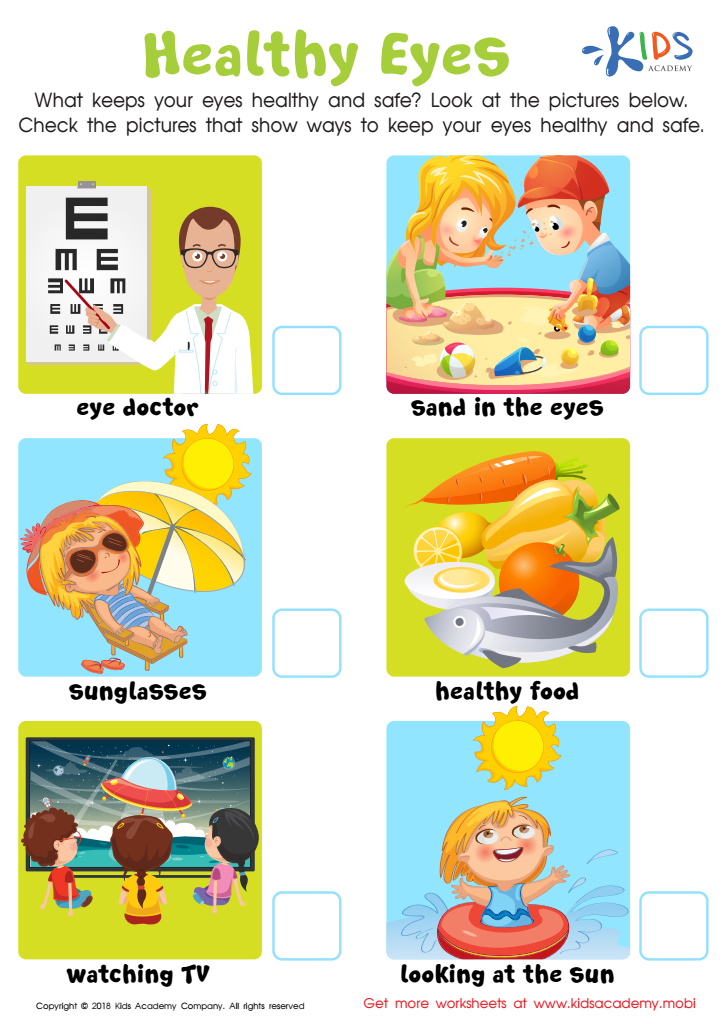

Healthy Eyes Worksheet
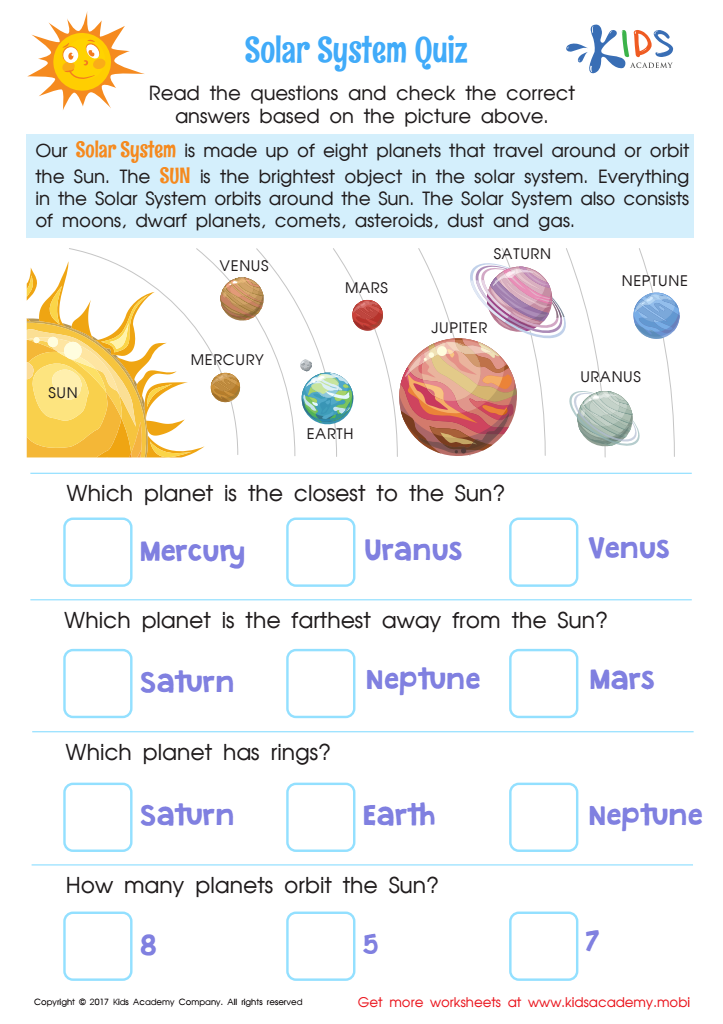

Solar System Quiz Printable
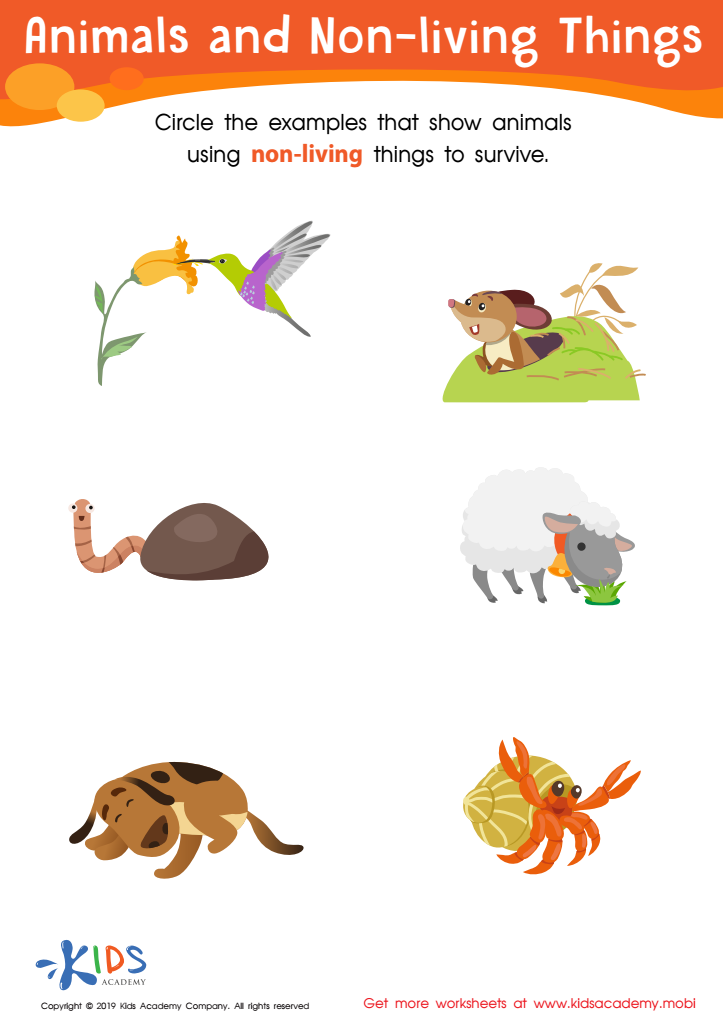

Animals and Non-Living Things Worksheet
Parents and teachers should care about science for ages 4-7 because early exposure to scientific concepts fosters curiosity, critical thinking, and a love for learning. At this age, children are naturally inquisitive, posing questions about the world around them. Engaging them in science cultivates this curiosity, helping them understand cause and effect, making observations, and exploring through hands-on experiences.
Early science education enhances language skills as children learn to articulate their thoughts and questions. It encourages problem-solving abilities by inviting them to experiment and hypothesize. For example, simple activities like observing plant growth or mixing colors can provide foundational knowledge about ecosystems and chemistry in a playful way.
Furthermore, science education promotes social skills as children often work in groups, sharing ideas and collaborating on projects. This early engagement not only lays the groundwork for future academic success in STEM (Science, Technology, Engineering, and Mathematics) but also equips children with essential skills for everyday life.
Finally, nurturing a scientific mindset at a young age helps prepare children to tackle global challenges, stimulate their imagination, and become informed citizens, making science a vital component of comprehensive childhood education.
 Assign to My Students
Assign to My Students


